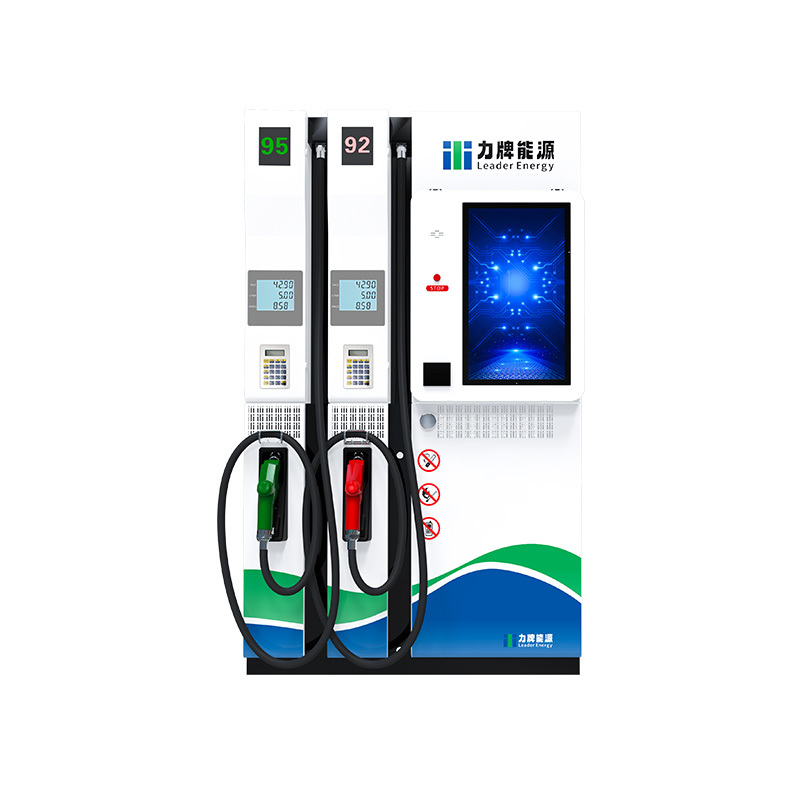The Essential Guide to Diesel Dispensers: Optimizing Fuel Delivery for Your Operations
Diesel dispensers are essential components of fuel delivery systems, particularly in the transportation sector. They are specifically designed to dispense diesel fuel efficiently and safely, making them a vital asset for any fueling station. Understanding the key features and maintenance needs of diesel dispensers can significantly impact operations, ensuring that vehicles are refueled quickly and
Diesel dispensers are essential components of fuel delivery systems, particularly in the transportation sector. They are specifically designed to dispense diesel fuel efficiently and safely, making them a vital asset for any fueling station. Understanding the key features and maintenance needs of diesel dispensers can significantly impact operations, ensuring that vehicles are refueled quickly and effectively.
A typical diesel dispenser consists of several critical components, including a fuel pump, flow meter, dispensing nozzle, and control systems. The fuel pump is responsible for moving diesel from the storage tank to the dispenser, while the flow meter accurately measures the volume of fuel dispensed. The dispensing nozzle ensures that the fuel is delivered safely and efficiently into the vehicle's tank. Advanced diesel dispensers also include electronic control systems that help manage the fueling process and monitor fuel inventory.
When it comes to selecting a diesel dispenser, compatibility with existing fuel delivery systems is crucial. Features such as flow rates, nozzle design, and safety mechanisms should align with your operational requirements. Additionally, consider dispensers with integrated filtration systems to prevent contaminants from entering the fuel system, thereby protecting vehicle engines and ensuring optimal performance.
Maintenance is another critical aspect of diesel dispensers. Regular inspections and servicing are essential to prevent downtime and ensure continuous operation. Common maintenance tasks include checking for leaks, testing the flow meter for accuracy, and cleaning or replacing filters. Keeping the diesel dispenser in good working condition will not only enhance efficiency but also extend its lifespan, ultimately saving costs over time.
Moreover, technological advancements have led to the development of smart diesel dispensers equipped with monitoring and reporting capabilities. These systems can track fuel usage patterns, notify operators of issues, and manage inventory levels, making operations more streamlined and efficient. Embracing such technology can provide significant advantages in today's competitive transportation landscape.
In conclusion, diesel dispensers play a pivotal role in fuel delivery systems within the transportation industry. By understanding their components, ensuring proper maintenance, and leveraging technological advancements, businesses can optimize their fueling operations. Whether you are setting up a new fueling station or upgrading an existing one, investing in high-quality diesel dispensers will lead to increased efficiency and customer satisfaction.
A typical diesel dispenser consists of several critical components, including a fuel pump, flow meter, dispensing nozzle, and control systems. The fuel pump is responsible for moving diesel from the storage tank to the dispenser, while the flow meter accurately measures the volume of fuel dispensed. The dispensing nozzle ensures that the fuel is delivered safely and efficiently into the vehicle's tank. Advanced diesel dispensers also include electronic control systems that help manage the fueling process and monitor fuel inventory.
When it comes to selecting a diesel dispenser, compatibility with existing fuel delivery systems is crucial. Features such as flow rates, nozzle design, and safety mechanisms should align with your operational requirements. Additionally, consider dispensers with integrated filtration systems to prevent contaminants from entering the fuel system, thereby protecting vehicle engines and ensuring optimal performance.
Maintenance is another critical aspect of diesel dispensers. Regular inspections and servicing are essential to prevent downtime and ensure continuous operation. Common maintenance tasks include checking for leaks, testing the flow meter for accuracy, and cleaning or replacing filters. Keeping the diesel dispenser in good working condition will not only enhance efficiency but also extend its lifespan, ultimately saving costs over time.
Moreover, technological advancements have led to the development of smart diesel dispensers equipped with monitoring and reporting capabilities. These systems can track fuel usage patterns, notify operators of issues, and manage inventory levels, making operations more streamlined and efficient. Embracing such technology can provide significant advantages in today's competitive transportation landscape.
In conclusion, diesel dispensers play a pivotal role in fuel delivery systems within the transportation industry. By understanding their components, ensuring proper maintenance, and leveraging technological advancements, businesses can optimize their fueling operations. Whether you are setting up a new fueling station or upgrading an existing one, investing in high-quality diesel dispensers will lead to increased efficiency and customer satisfaction.








